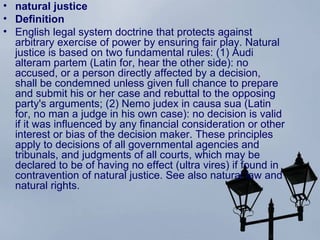- 1. ADJUDICATION
- 2. Meaning ‘ Adjudication involves intervention in the dispute by a third party appointed by the government for the purpose of deciding the nature of final settlement’.
- 3. Why?? When the government gets a report of the failure of conciliation, it has to decide whether it would be appropriate to refer the dispute to adjudication. Developing countries can’t afford to suffer loss of production from long-drawn strikes and lockouts.
- 4. Why?? Further, the trade union cannot rely only on collective bargaining for the protection of the interest of the workers. Therefore, the need for intervention by the government is felt. This, the government does by making references of disputes to the adjudication machinery
- 5. Socio-Economic Importance of Adjudication “ It is always a matter of making reasonable adjustments between the two competing claims. So the claims of the interests of the general public have to be weighed and balanced against the claims of the individual citizen in regard to his fundamental right. So, too, in the case of adjudication, the claims of the employer based on the freedom of contract have to be adjusted with the claims of industrial employees for social justice."
- 6. Types of Adjudication When the government gets a report of the failure of conciliation proceedings, it has to decide whether it would be appropriate to refer the dispute to arbitration. The reference of dispute to adjudication is at the discretion of the government.
- 7. Types of Adjudication When both parties, of their own accord, agree to refer the dispute to adjudication, it is obligatory on the part of the government to make a reference. When a reference to adjudication is made by the parties, it is called Voluntary Adjudication.
- 8. Types of Adjudication On the other hand, when reference is made to adjudication by the government without the consent of either or both the parties to the dispute, it is known as Compulsory Adjudication.
- 9. Three-Tier System of Adjudication The Industrial Disputes Act, 1947 provides for a three-tier system of adjudication: (1) Labour Courts; (2) Industrial Tribunals; and (3) National Tribunals.
- 10. Three-Tier System of Adjudication The Labour Courts adjudicate upon disputes listed in Schedule II of the Act The Industrial Tribunals adjudicate upon disputes listed in Schedule II or III of the Act.
- 11. Three-Tier System of Adjudication The National Tribunals adjudicate upon disputes which are of national importance, or when the dispute is of such a nature as to affect industrial establishments situated in more than one state.
- 12. LABOUR COURTS Constitution : A labour court shall consist of one person only, who: (a) Is or has been a judge of a High Court; or (b) Has been, for a period of not less than 3 years, a District Judge; or (c) Has held any judicial office in India for not less than 7 years.
- 13. LABOUR COURTS No person shall be appointed or continue in the office of the labour court if he is not an independent person, or if he has attained the age of 65.
- 14. LABOUR COURTS The duties of the labour court are: (i) To hold adjudication proceedings expeditiously; and (ii) Submit its award to the appropriate government as soon as practicable on the conclusion of the proceedings.
- 15. Jurisdiction The jurisdiction of labour courts extends to the adjudication of the following disputes relating to matters specified in the Second Schedule: The propriety or legality of an order passed by an employer under the Standing Orders. The application and interpretation of Standing Orders.
- 16. Discharge or dismissal of workers, including reinstatement of, or grant of relief to, workers wrongfully dismissed. Withdrawal of any customary concession or privilege. Illegality or otherwise of a strike or lockout. All matters other than those specified in the Third Schedule of the Act (i.e., those matters which are within the jurisdiction of industrial tribunals).
- 17. LABOUR COURTS ‘The labour court has no power whatever except those powers which can be traced to a Statute, to a statutory rule or a statutory instrument. It has no supervisory jurisdiction, i.e., it cannot act as a guardian of an industrial establishment’.
- 18. LABOUR COURTS The jurisdiction of the labour court is circumscribed. It does not apply its mind to find out if a different conclusion is possible. Its duty is to see whether the enquiry satisfies the principles of natural justice; whether there was material for the managements to act in the manner they did and whether their act was savoured of any malpractice or victimization.
- 19. LABOUR COURTS In the absence of such an indication ex facie in the proceedings of the enquiry officer, the labour court is normally expected to approve the decision of the domestic enquiry and grant the permission asked for.
- 20. Ex facie , Latin for "on the face [of it]," is a legal term typically used to note that a document's explicit terms are defective without further investigation. For example, a contract between two parties would be void if, ex facie , the document does not require party A to give consideration to party B for services rendered.
- 21. INDUSTRIAL TRIBUNALS The matters which are in the form of new demands and give rise to industrial disputes which affect the working of a company or industry are usually referred to an industrial tribunal. The industrial tribunal may be appointed for a limited period on an ad hoc basis or permanently.
- 22. Constitution A tribunal shall consist of one or more persons, such as a) Are or have been judge(s) of a High Court; (b) Are or have been District Judge(s) for a period of not less than 3 years;
- 23. Constitution (c) Hold or have held the office of the chairman or any other member of the Labour Appellate Tribunal or any tribunal for a period of not less than 2 years.
- 24. Although it is not a court, it has all the necessary attributes of a court of justice. It may create new obligations or modify contracts in the interest of industrial peace; protect legitimate trade union activities and prevent unfair practices and victimization. The tribunals are required to give awards based on circumstances peculiar to each dispute; and they are, to a large extent, free from restrictions of technical consideration or rules of evidence imposed on courts.
- 25. Jurisdiction An industrial tribunal has a wider jurisdiction than labour courts. It has jurisdiction over any matter specified in the Second Schedule or Third Schedule. The jurisdiction covers the promotion of social justice, that is, fairness in the adjudication proceedings to all concerned parties.
- 26. Third Schedule Wages, including the period and mode of payment. Compensatory and other allowances. Hours of work and rest intervals. Leave with wages and holidays. Bonus, profit-sharing, provident fund and gratuity.
- 27. Third Schedule Shift working, otherwise than in accordance with the standing orders. Classification of grades Rules of discipline. Rationalization. Retrenchment of workmen and closure of an establishment. Any other matter that may be prescribed.
- 28. Model Principles for Reference of Disputes to Adjudication All disputes ordinarily be referred to adjudication on request. Disputes may not, however, be ordinarily referred to adjudication: (a) Unless efforts at conciliation have failed and there is no further scope for conciliation and the parties are not agreeable to arbitration;
- 29. Model Principles for Reference of Disputes to Adjudication (b) If there is a strike or lockout declared illegal by a court, or a strike or lockout resorted to without seeking settlement by means provided by law and without proper notice or in breach of the Code of Discipline as determined by the machinery set up for the purpose, unless such a strike or lockout, as the case may be, is called off;
- 30. Model Principles for Reference of Disputes to Adjudication (c) If the issues involved are such as have been the subject matter of recent judicial decisions or in respect of which an unduly long time has elapsed since the origin of the cause of action; and
- 31. Model Principles for Reference of Disputes to Adjudication (d) If in respect of demands, other legal remedies are available, that is, matters covered by the Factories Act, Workmen's Compensation Act, Minimum Wages Act, Payment of Wages Act, etc.
- 32. Model Principles for Reference of Disputes to Adjudication 3.Industrial disputes raised in regard to individual cases, that is, cases of dismissal, discharge or any other action of management on disciplinary grounds, may be referred for adjudication when the legality or propriety of such action is questioned, and in particular:
- 33. Model Principles for Reference of Disputes to Adjudication (a) If there is a case of victimization or unfair labour practice; (b) If the Standing Orders in force or the principles of natural justice have not been followed; and (c) If the conciliation machinery reports that injustice has been done to the worker.
- 34. Model Principles for Reference of Disputes to Adjudication Whenever an industrial dispute exists, or even where there is a mere apprehension that it will arise, the government may make a reference of the dispute for adjudication.
- 35. Model Principles for Reference of Disputes to Adjudication The following principles regarding the powers of the government to make a reference of industrial disputes have been established by a series of judicial decisions: The government must be of the opinion that an industrial dispute actually exists or is apprehended;
- 36. Model Principles for Reference of Disputes to Adjudication Making a reference is an executive and administrative act and not a judicial or quasi-judicial act. Government's order making a reference, therefore, cannot be challenged on ground that the government has no material before it to come to the conclusion that the dispute exists;
- 37. Model Principles for Reference of Disputes to Adjudication Expediency of making a reference is a matter entirely for the government to decide. Even if a dispute factually exists, the government may not make a reference. The government cannot be compelled by a court to make a reference. Making of reference, thus, is not a duty or an obligation on the part of the government but a matter of discretion;
- 38. Model Principles for Reference of Disputes to Adjudication The government may refer the dispute or any matter appearing to be connected with or relevant to the dispute, whether it relates to any matter specified in the Second Schedule or the Third Schedule, to a tribunal for adjudication;
- 39. Model Principles for Reference of Disputes to Adjudication Where the government is of the opinion that any industrial dispute exists or is apprehended and that the dispute involves any question of national importance or is of such a nature that industrial establishments situated in more than one state are likely to be interested in or affected by it, it may refer the dispute for adjudication to the National Tribunal- whether it relates to any matter specified in the Second or the Third Schedule;
- 40. Model Principles for Reference of Disputes to Adjudication Where the dispute relates to any matter specified in the Third Schedule and is not likely to affect more than 100 workers, the government may make a reference to a labour court;
- 41. Model Principles for Reference of Disputes to Adjudication It is mandatory upon the government to make a reference of disputes to courts or tribunals where: (a) the dispute relates to a public utility service; (b) a notice of strike or lockout has been given;
- 42. Model Principles for Reference of Disputes to Adjudication (e) where the parties to the dispute apply in the prescribed manner for a reference and the government is satisfied that the persons applying represent the majority of each party;
- 43. Model Principles for Reference of Disputes to Adjudication The reference shall be made even if any other proceeding has commenced; but this mandatory power is subject to two exceptions: (a) the notice has been frivolously or vexatiously given; or (b) it would be expedient to make a reference.
- 44. Model Principles for Reference of Disputes to Adjudication An order of reference passed by the government can be challenged on the following grounds: (i) that the order is void ab initio or without jurisdiction; (ii) where the order of reference is made in bad faith or is mala fide;
- 45. Ab Initio [ Latin, From the beginning; from the first act; from the inception. ] An agreement is said to be "void ab initio " if it has at no time had any legal validity. A party may be said to be a trespasser, an estate said to be good, an agreement or deed said to be void , or a marriage or act said to be unlawful, ab initio. Contrasted in this sense with ex post facto, or with postea (after these or those (things), afterward.]
- 46. Model Principles for Reference of Disputes to Adjudication (iii) the appropriate government had no material before it; (iv) it did not apply its mind to the material before it; (v) it has not taken into consideration certain vital facts and materials which it ought to have taken into account.
- 47. Ex facie , Latin for "on the face [of it]," is a legal term typically used to note that a document's explicit terms are defective without further investigation. For example, a contract between two parties would be void if, ex facie , the document does not require party A to give consideration to party B for services rendered.
- 48. Ab Initio [ Latin, From the beginning; from the first act; from the inception. ] An agreement is said to be "void ab initio " if it has at no time had any legal validity. A party may be said to be a trespasser, an estate said to be good, an agreement or deed said to be void , or a marriage or act said to be unlawful, ab initio. Contrasted in this sense with ex post facto, or with postea (after these or those (things), afterward.]
- 49. natural justice Definition English legal system doctrine that protects against arbitrary exercise of power by ensuring fair play. Natural justice is based on two fundamental rules : (1) Audi alteram partem (Latin for, hear the other side): no accused, or a person directly affected by a decision , shall be condemned unless given full chance to prepare and submit his or her case and rebuttal to the opposing party's arguments ; (2) Nemo judex in causa sua (Latin for, no man a judge in his own case): no decision is valid if it was influenced by any financial consideration or other interest or bias of the decision maker . These principles apply to decisions of all governmental agencies and tribunals, and judgments of all courts, which may be declared to be of having no effect ( ultra vires ) if found in contravention of natural justice. See also natural law and natural rights .


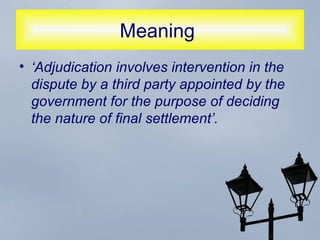
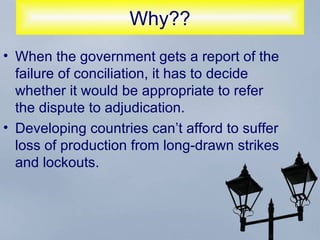
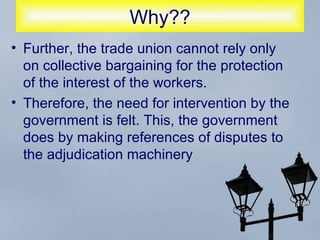
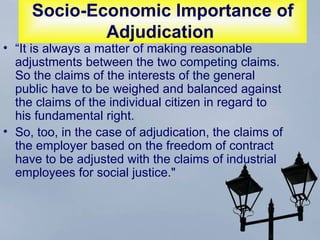
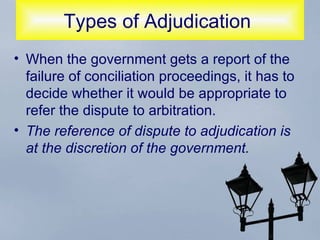
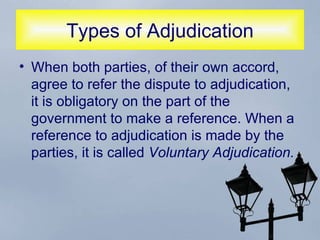
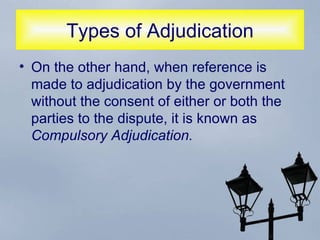
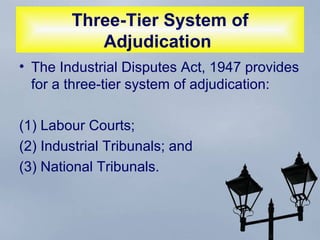
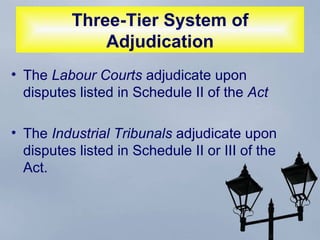
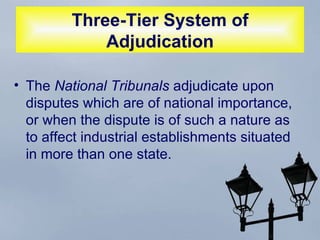
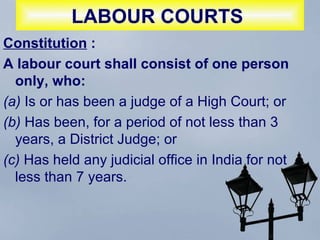
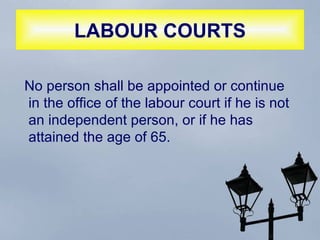
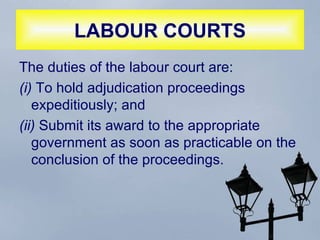
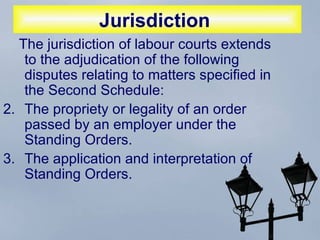
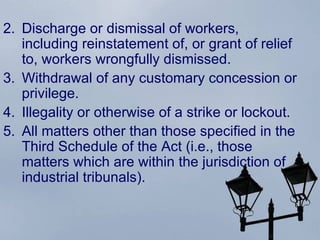
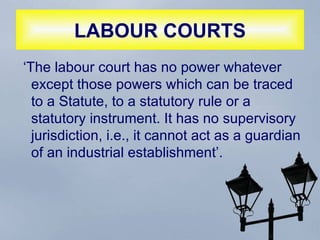
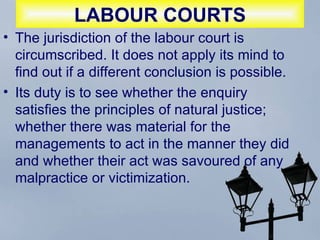
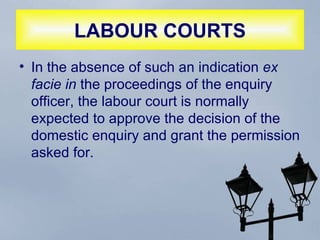
![Ex facie , Latin for "on the face [of it]," is a legal term typically used to note that a document's explicit terms are defective without further investigation. For example, a contract between two parties would be void if, ex facie , the document does not require party A to give consideration to party B for services rendered.](https://image.slidesharecdn.com/adjudication-090909193718-phpapp02/85/Adjudication-20-320.jpg)
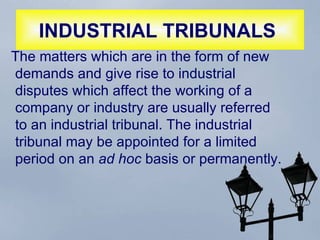
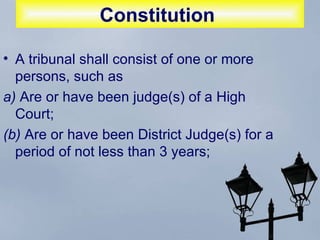
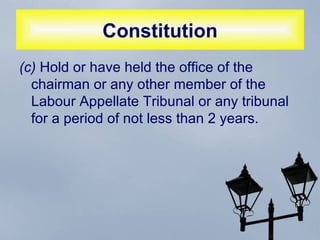
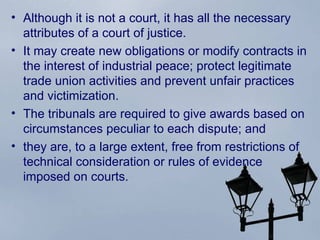
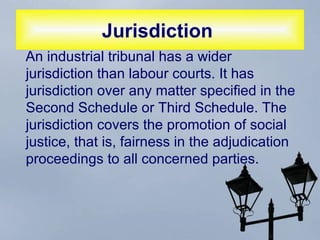
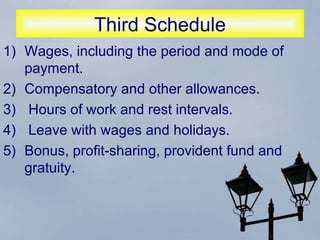
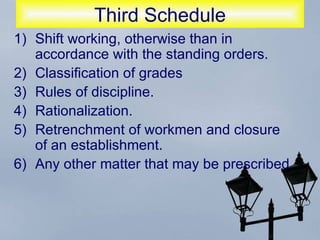
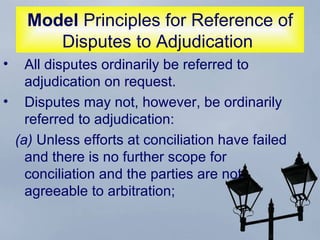
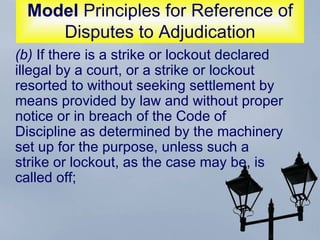
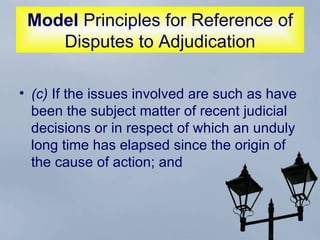
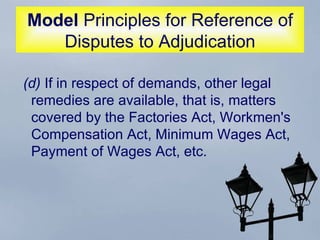
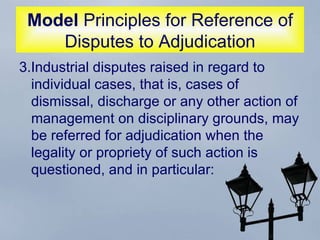
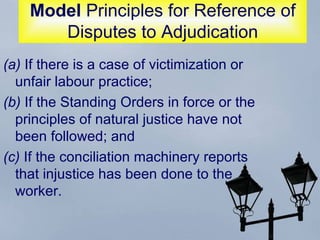
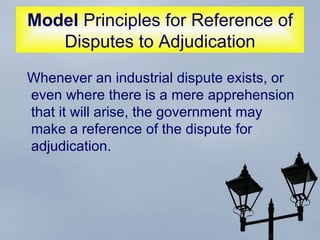
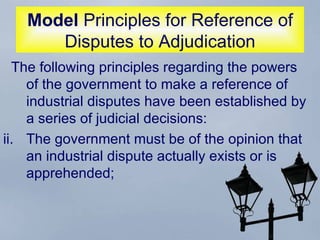
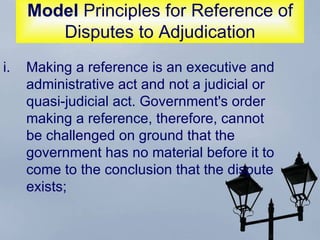
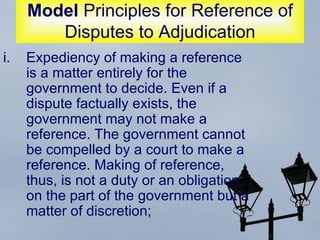
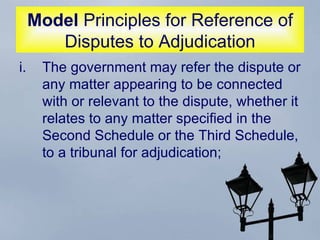
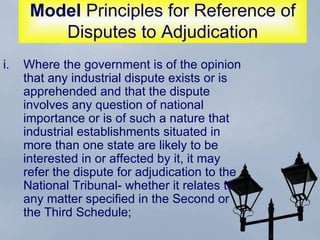
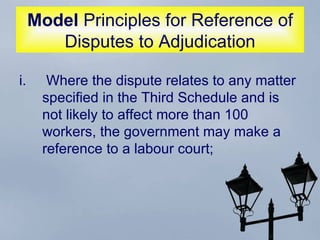
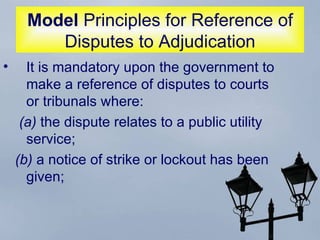
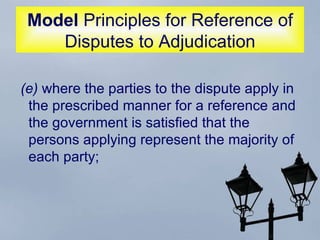
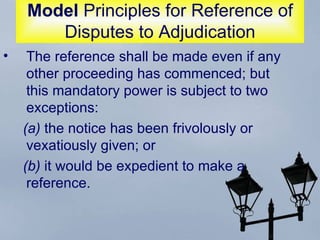
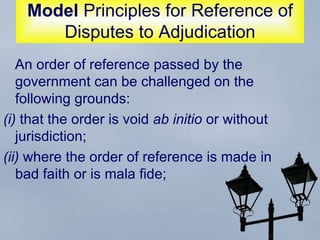
![Ab Initio [ Latin, From the beginning; from the first act; from the inception. ] An agreement is said to be "void ab initio " if it has at no time had any legal validity. A party may be said to be a trespasser, an estate said to be good, an agreement or deed said to be void , or a marriage or act said to be unlawful, ab initio. Contrasted in this sense with ex post facto, or with postea (after these or those (things), afterward.]](https://image.slidesharecdn.com/adjudication-090909193718-phpapp02/85/Adjudication-45-320.jpg)
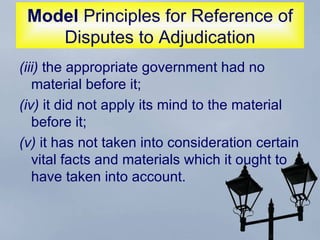
![Ex facie , Latin for "on the face [of it]," is a legal term typically used to note that a document's explicit terms are defective without further investigation. For example, a contract between two parties would be void if, ex facie , the document does not require party A to give consideration to party B for services rendered.](https://image.slidesharecdn.com/adjudication-090909193718-phpapp02/85/Adjudication-47-320.jpg)
![Ab Initio [ Latin, From the beginning; from the first act; from the inception. ] An agreement is said to be "void ab initio " if it has at no time had any legal validity. A party may be said to be a trespasser, an estate said to be good, an agreement or deed said to be void , or a marriage or act said to be unlawful, ab initio. Contrasted in this sense with ex post facto, or with postea (after these or those (things), afterward.]](https://image.slidesharecdn.com/adjudication-090909193718-phpapp02/85/Adjudication-48-320.jpg)
